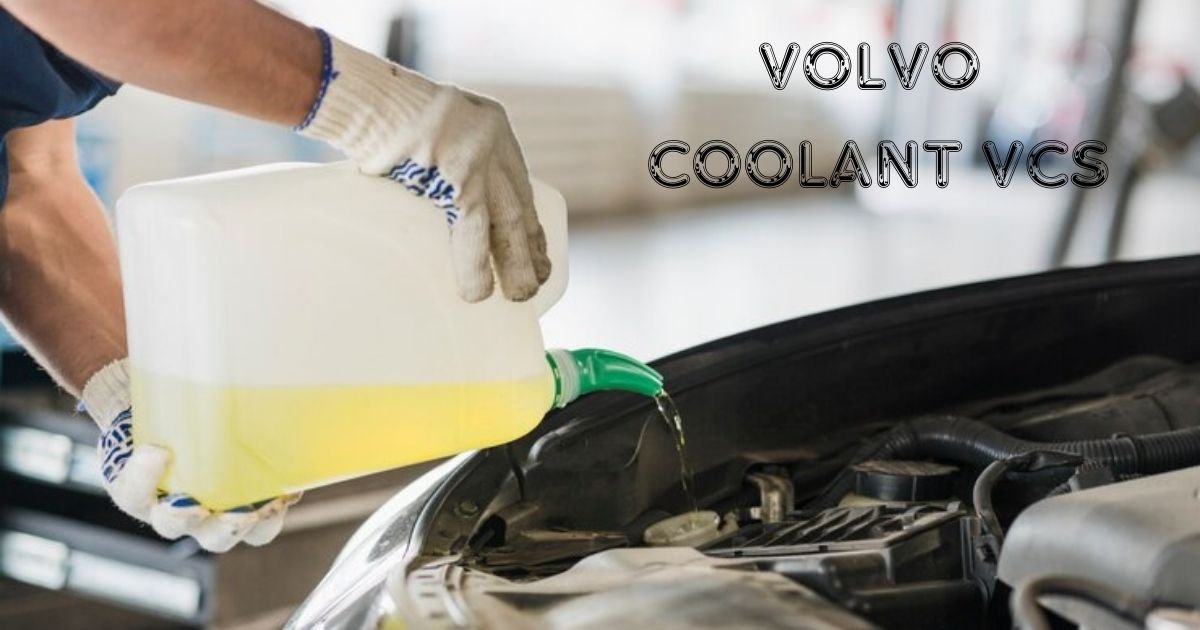Maintaining the engine’s cooling system is essential for vehicle performance and longevity. One key aspect of this system is the coolant used, and for Volvo vehicles, Volvo Coolant VCS (Vehicle Coolant Specification) is specifically designed to optimize engine cooling, prevent overheating, and protect components from corrosion. In this article, we’ll explore everything you need to know about Volvo Coolant VCS, its importance, benefits, and best practices for using it.
What is Volvo Coolant VCS?
Volvo Coolant VCS is a specialized antifreeze and coolant formula engineered for Volvo vehicles. It meets the unique cooling requirements of Volvo engines, ensuring optimal performance in all climates. This coolant is formulated to prevent rust, corrosion, and scaling, and it offers a long-lasting protection for the engine’s components.
Why is Coolant Important in a Vehicle?
Coolant, also known as antifreeze, plays a critical role in regulating your vehicle’s temperature. It circulates through the engine and absorbs heat, preventing the engine from overheating. Without proper coolant, the engine could overheat or freeze, leading to expensive repairs or even engine failure. Coolants also protect the cooling system’s metal components from rust and corrosion.
Key Features of Volvo Coolant VCS
Volvo Coolant VCS stands out from generic coolants for several reasons:
- Long-lasting protection: The formula offers extended protection, often lasting up to 5 years or 150,000 miles.
- Anti-corrosion properties: Volvo Coolant VCS prevents rust and corrosion, ensuring the longevity of engine parts.
- Optimized for Volvo engines: It’s designed specifically for Volvo vehicles, ensuring compatibility and peak performance.
- Stable in all temperatures: The coolant is effective in both extreme cold and hot weather, preventing freezing and overheating.
How Volvo Coolant VCS Works
Volvo Coolant VCS works by circulating through the engine and absorbing heat. This heat is then transferred to the radiator, where it is dissipated into the air. The coolant also has additives that prevent the formation of rust, scale, and deposits that could clog the system, ensuring the engine runs smoothly.
The Importance of Using Volvo-Specific Coolant
Using a coolant designed for Volvo vehicles, like Volvo Coolant VCS, ensures that your engine gets the precise protection it needs. Generic coolants may not provide the same level of protection, particularly when it comes to corrosion prevention and temperature regulation. Since Volvo engines are engineered to exact specifications, using Volvo Coolant VCS can help prevent wear and tear that could result from using an incorrect coolant.
How to Check and Maintain Coolant Levels
Maintaining the right coolant level is essential for your vehicle’s health. Here’s a simple guide to checking and maintaining coolant levels in your Volvo:
Allow the engine to cool: Never check coolant levels when the engine is hot. Wait until it cools down to avoid burns.
Locate the coolant reservoir: In most Volvo models, the coolant reservoir is a translucent tank located near the engine.
Check the level: The reservoir will have minimum and maximum markers. Ensure the coolant level is within this range.
Top off if needed: If the coolant is low, add the recommended Volvo Coolant VCS, but avoid overfilling.
Signs Your Coolant Needs to Be Replaced
Over time, coolant can degrade and lose its effectiveness. Here are some signs that you need to replace your coolant:
- Discolored coolant: If the coolant has turned brown or rust-colored, it’s time for a replacement.
- Overheating engine: If your engine frequently overheats, old or insufficient coolant may be the cause.
- Visible debris: If you see particles or sludge in the coolant reservoir, the coolant has likely degraded.
- Coolant leaks: Puddles of coolant under your vehicle are a clear sign that it needs to be addressed.
How Often Should You Change Volvo Coolant VCS?
For most Volvo vehicles, it is recommended to change the coolant every 5 years or 150,000 miles, whichever comes first. However, you should always consult your vehicle’s owner manual for specific recommendations based on your model and driving conditions.
Volvo Coolant VCS vs. Other Coolants
Volvo Coolant is formulated specifically for Volvo engines, giving it an advantage over other coolants. Here’s how it compares:
- Longevity: Many generic coolants require more frequent changes, but Volvo Coolant lasts longer, up to 5 years.
- Corrosion protection: While other coolants offer general protection, Volvo Coolant is tailored to Volvo’s specific engine materials.
- Compatibility: Using non-Volvo coolants can lead to poor performance or even damage, as they may not be compatible with the engine’s design.
Can You Mix Volvo Coolant VCS with Other Coolants?
It is not recommended to mix it with other coolants. Different coolants have varying chemical compositions, and mixing them can reduce their effectiveness or even cause damage to the cooling system. If you need to top off the coolant, always use the same type that’s already in the system, ideally Volvo Coolant.
DIY vs. Professional Coolant Replacement
While replacing coolant can be a DIY task for many vehicle owners, there are benefits to having it done by a professional:
- Expert inspection: A professional mechanic will inspect the entire cooling system, looking for leaks or other potential issues.
- Proper disposal: Old coolant must be disposed of properly, and professionals will handle this for you.
- Peace of mind: With a professional handling the task, you can be sure the coolant is replaced correctly.
Environmental Impact of Coolants
Coolants, including Volvo Coolant, contain chemicals that can be harmful to the environment if not disposed of properly. Never pour old coolant down the drain or onto the ground. Take used coolant to a recycling center or automotive shop that handles coolant disposal.
Where to Buy Volvo Coolant VCS
You can purchase Volvo Coolant at authorized Volvo dealerships, automotive stores, or online retailers. Always ensure that you are buying genuine Volvo Coolant VCS, as using counterfeit products can harm your vehicle.
Conclusion
Volvo Coolant VCS is a vital component in maintaining your vehicle’s engine performance and longevity. By using the correct coolant, you can prevent overheating, corrosion, and unnecessary wear on your engine. Regularly checking and maintaining your coolant levels, along with timely replacement, will help ensure your Volvo stays in top condition for years to come.
FAQs
How long does Volvo Coolant VCS last?
Volvo Coolant typically lasts up to 5 years or 150,000 miles, depending on the driving conditions.
Can I use any coolant in my Volvo?
It is recommended to use Volvo-specific coolant like Volvo Coolant to ensure optimal performance and protection.
What happens if I use the wrong coolant?
Using the wrong coolant can cause corrosion, poor engine performance, and even damage to your vehicle’s cooling system.
How can I tell if my coolant needs to be replaced?
Check for discolored coolant, overheating, debris in the coolant, or leaks as signs that it’s time for a replacement.
Where can I buy genuine Volvo Coolant VCS?
You can purchase genuine Volvo Coolant from authorized Volvo dealerships, automotive stores, or trusted online retailers.











